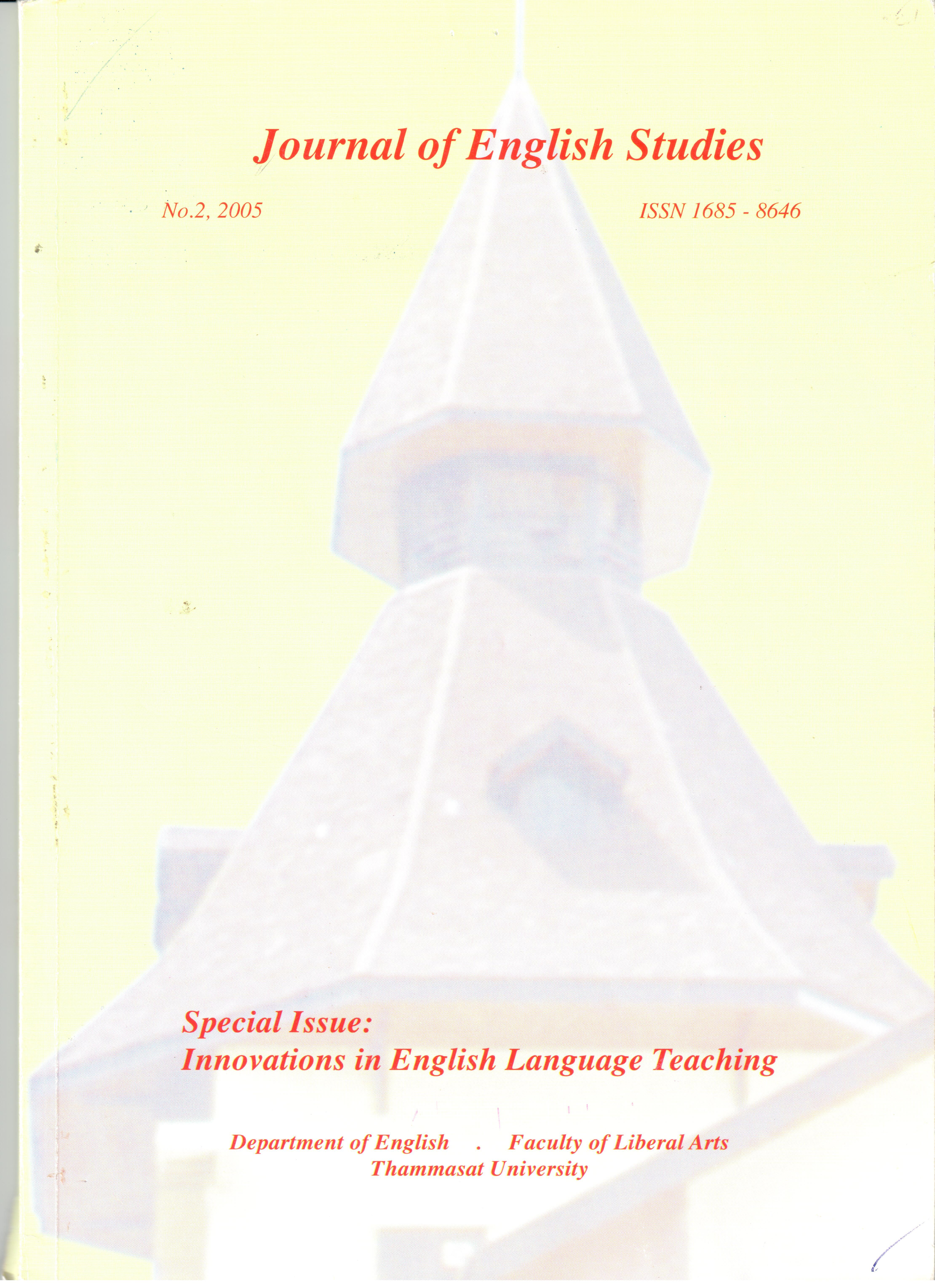Collocational Properties of Singular and Plural Nouns in English : A Problem for Learners and Lexicographers
Main Article Content
Abstract
As has been noted by Hoey(2002), the singular and plural forms of certain English nouns - such as 'consequence' - show sharply different patterns of lexical collocation. The present paper offers details of a small-scale corpus-based investigation into four English nouns ('affair', 'balance', 'consequence' and'damage') and their singular and plural forms. Differences in collocation and semantics are noted between the two forms of each noun. A brief summary of the dictionary treatment of all four nouns is offered. Finally, the paper asks how learners of English as a second or foreign language can gain sufficient awareness of the collocational and semantic differences between singular and plural forms of the same noun when condensed dictionary entries are only able to offer parital information.Despite the paucity of hard empirical evidence showing that independent and teacher-directed learning using corpus data or computer concordances can lead to enhanced lexical competence, it is argued that concordance-based study offers the most plausible avenue towards native-like awareness of individual word-forms and of their semantic and collocational characteristics.
Article Details
How to Cite
Poole, B. (2014). Collocational Properties of Singular and Plural Nouns in English : A Problem for Learners and Lexicographers. Journal of Studies in the English Language, 2. retrieved from https://so04.tci-thaijo.org/index.php/jsel/article/view/23178
Issue
Section
Articles
Authors who publish with this journal agree to the following terms: Authors retain copyright and grant the journal right of first publication with the work simultaneously licensed under a Creative Commons Attribution License that allows others to share the work with an acknowledgement of the work's authorship and initial publication in this journal. Authors are able to enter into separate, additional contractual arrangements for the non-exclusive distribution of the journal's published version of the work (e.g., post it to an institutional repository or publish it in a book), with an acknowledgement of its initial publication in this journal. Authors are permitted and encouraged to post their work online (e.g., in institutional repositories or on their website) prior to and during the submission process, as it can lead to productive exchanges, as well as earlier and greater citation of published work (See The Effect of Open Access).


